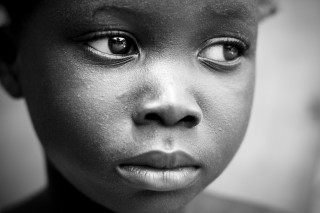Once again, the plight of the kidnapped Chibok school girls in Nigeria has been pushed to the forefront of the media. This is largely due to the most recent video released by Boko Haram, demanding the captured members of their group in exchange for the girls. It has been a long and tiring battle between the Nigerian army and other concerned stakeholders for the return of the kidnapped girls with more downs than ups. However, in May this year, the story concerning these girls took a turn for the better when one of them, identified as Amina Ali Nkeki, was rescued in the Sambisa forest area, close to the Nigerian border with Cameroon.
Since her “rescue,” rehabilitation and re-integration into what is considered as normal life in Nigeria has been anything but smooth for Amina. When she was found in May, many expressed hope that she will be given the adequate physical and mental health care that she so desperately needed. Unfortunately, it does not appear that she has received the mental health care aspect and this is very baffling.
According to an American psychiatrist, Dr. David Sack, “in situations like this, where there are multiple hostages or prisoners, it is not unusual for one captive to be treated far worse or to have a psychological response that is more severe than the other prisoners.” He also adds that “in the weeks and months following a traumatic event, some people develop post-traumatic stress disorder. They may have difficulty sleeping because of nightmares, anxiety and frightening thoughts…Recovery [from this type of situation] is a process that takes time, patience and often long-term therapy.”
According to reporters who spoke with Amina, she appears to be very shy and not very interested in speaking to anyone about her ordeal, which is expected. However, she has voiced her feelings about missing her husband in captivity, a man identified as Mohammed Hayatu. She says she does not know where he is and wants to be reunited with him.
“I’m not comfortable with the way I’m being kept from him,” Amina told CNN in her first worldwide interview, at an undisclosed location in Abuja on Tuesday.
When she was first found, she insisted that he was not one of the members of the Boko Haram group terrorising the state. Speaking to security officials after her rescue, she mentioned that they saw her with a man, holding a baby and then made the move to capture both of them. Since then she has not seen or heard from the man who was allegedly kidnapped by the terrorists and forced into captivity as well.
Addressing the father of her child directly in her interview with CNN, she says: “I want you to know that I’m still thinking about you, and just because we are separated doesn’t mean I have forgotten about you.”
Could it be that contact with Hayatu may help spur her recovery along?
She has been living in Abuja since her rescue with her mother and reportedly mentioned that she just wants to go home. The Nigerian government has kept her hidden away for what they termed a “restoration process” and whether or not this is helping her is unclear. Amina no longer yearns to go to school, “I just want to go home – I don’t know about school,” she told the Thomson Reuters Foundation in an exclusive interview. Although she added that she will think about returning to school when she gets home, no one is sure this will actually happen.
The ‘restoration process’ for the first girl rescued from Boko Haram does not appear to be doing any good. There’s so much more involved in the entire rehabilitation process and, according to reports, she seems rather resolute. It’s almost as if she’s returning into the society as a ‘girl who has no face,’ a shell with all her dreams gone down the drain as opposed to someone who may recover and consider receiving an education and all. But what did we expect?
The Nigerian state has failed Amina and the other girls so badly, it would be shocking if, at the end of this ordeal, any of the girls consider going back to school and proceed to lead normal lives.








